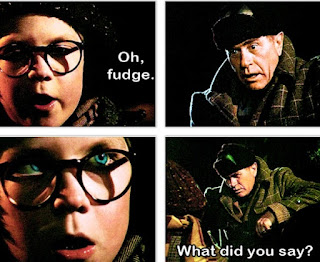
Last week one of my healthcare providers and I were chatting about the challenge of explaining Post-Traumatic Stress Disorder to people, particularly when you don’t seem like a typical victim.
PTSD can happen to anyone. Trauma tangles the neural wiring that connects a wide variety of brain functions, including memory, fear, rage, reason, and motor control. Two people can endure the same traumatic event or experience, but only one might develop PTSD. Days or years later, you might encounter a particular feeling, person, or experience that flips the switches in your brain and triggers a cascading response from your body.
One of my friends in Bellingham developed PTSD after serving as an Army Ranger medic in Afghanistan. I told him I feel sheepish sharing the same DSM-5 category as him. He told me not to worry, and that soldiers feel lucky they get so many folks’ respect. They’re more concerned about the many children and women who are scarred by the impact of domestic abuse and do not have access to the help they need.
In November 2015, my Bellingham physician Dr. Heuristic sent me to a specialized PTSD therapist. She helped me identify how my symptoms were rooted in traumatic events I experienced thirty years earlier as an overachieving gay student at Brigham Young University and as an earnest Mormon missionary in Korea.
In my recent blog essays “Move On” and “Blink,” I described the Mormon church’s relentless campaign against LGBT dignity and inclusion. Throughout my lifetime, Mormon leaders have insisted on embracing junk science, such as pray-the-gay-away “reparative therapy.” Perhaps most insidiously, the Brethren deny our very existence – refusing to use words like “gay,” “lesbian,” or “transgender,” and instead insisting we’re merely weak sinners who struggle with what they refer to as “same-sex attraction problems.” When you also consider my family’s wrenching move from Vancouver to Utah when I was an adolescent, plus my coming out as a gay man at the height of the AIDS pandemic, it’s no wonder I ended up with PTSD.
Because of the nature of my underlying traumas, my most serious individualized PTSD symptoms are triggered when I feel a sense of powerlessness, repression, being silenced, or rendered invisible once again. As result, my disability makes me particularly vulnerable to gaslighting lawyer tactics.
Looking back at my writing about mental illness over the last four years, I realize I’ve focused primarily on the physical symptoms, such as trichotillomania, insomnia, and bruxism, that emerged after my abusive former employers triggered my body’s response to ancient traumas. Because of Defendants’ and their co-conspirators’ subsequent misconduct and their continued stonewalling delays, I remain trapped in a vicious cycle of stressful triggers, re-traumas, and re-triggers. I’ve written about the resulting plagues of boils, MRSA, auto-immune dysfunction, depression, anxiety, but not frogs yet.
I’ve also referred several times to triggers leading to “PTSD episodes,” but I haven’t yet described the mechanics of the experience. In some ways it’s like the arrival of a migraine – you realize it’s happening, but there’s nothing you can to do to stop the buzzing and pressure on your brain. Soon it becomes impossible to think and communicate clearly.
When I began reporting about life with mental illness, my examples of PTSD episodes all involved wretched customer service. I had a short fuse, and I ran into a lot of bad service. Eventually I learned to modulate my reaction to frustrating encounters. Now I react excessively only to terrible service with a reality-denying totalitarian bent, not your day-to-day consumer abuse. For example, just last week I made an embarrassing scene in a bank lobby. Not my fault.
When my disability was still new, I was constantly surprised by the wide variety of triggering events that somehow resonated with my thirty-year old traumas. Things have mellowed since then. My biggest PTSD epiphany this year came when I was playing a family board game at my parents’ house, and I became so frustrated I had to go into the other room and give myself a timeout. (It turns out there are trauma-based reasons I haven’t been able to play chess since I was a child, much to my son’s disappointment.)
Despite the progress I’ve made with my disability, I continue to endure another very predictable trigger: gaslighting lawyers. In May 2017, I filed a lawsuit in state court against the attorney-investigator firm my former employers hired to cover up my wrongful termination. Attorney General Bob Ferguson assigned two lawyers from the Attorney General’s Tort Division, Assistant Attorney General Suzanne LiaBraaten and Assistant Attorney General Janay Ferguson, to represent the State’s interest in the investigator lawsuit. Ferguson and LiaBraaten obstructed discovery, made frivolous privilege assertions, and abused the legal process. In 2019, Ferguson and LiaBraaten violated the Ethics in Public Service Act and the Rules of Professional Responsibility when they made false representations in their co-workers’ lawyer discipline proceeding. Ferguson herself is the subject of a pending ethics complaint, and is a named defendant in my federal lawsuit against the State and its representatives.
Nevertheless, Attorney General Ferguson insisted on assigning Defendant Ferguson as lead counsel on behalf of the other defendants in the federal lawsuit. Her conduct of the litigation has been an outrage. Here’s what I said in a sworn declaration about how it feels when dishonest government lawyers trigger a PTSD episode:
Responding to the first motion Defendant Ferguson filed in my federal court case one year ago was one of my most harrowing experiences in years. For every ten minutes I spent working on the brief, I had to spend at least an hour on soothing activities like talking with my children, walking the dogs, meditating, exercising, etc. Now that my kids are back from visiting my ex during the summer, the presence of other observers in the house makes my AGO- triggered PTSD symptoms even more noticeable. Over and over as I was forced to confront the State’s lies, I would read or write a single sentence. Then I would compulsively leap out of my chair and pace ten or twenty laps around the house, grinding my teeth from bruxism and rubbing my scalp raw from trichotillomania. When my teenaged daughter who wants to go to medical school heard my involuntary wheezes and groans, she thought I was having a heart attack.
Every one of Defendant Ferguson’s court filings and each of her communications to me over the past year was triggering. (Fortunately, her good cop co-counsel politely handled all the administrative stuff.) For example, on multiple occasions she took the position on behalf of the State of Washington that for the last six years I’ve been faking a disability to cover up for my professional incompetence and my sexism.
I asked the State’s lawyers to accommodate my disability by assigning a lawyer other than Defendant Ferguson to communicate with me. They refused. Eventually I asked the judge to order this reasonable disability accommodation. On September 15, 2021, Judge Jones granted my request. I felt a huge weight lift from my shoulders.
Defendant Ferguson’s counterpart in my state court lawsuit against the private investigator firm is Claire Martirosian, a junior partner at the grinding insurance defense firm whose apparent goal is to provoke me into pulling out the last hair on my forehead.
Ms. Martirosian has been involved in the case ever since the summer of 2017 when the investigators fired their first, even less smart insurance defense firm. In contrast with the division of labor between the boy-girl legal team in my federal lawsuit against the State, Ms. Martirosian is handling everything solo. That means she plays both the good cop and bad cop roles. In “Secret Agent,” I wrote about how Ms. Martirosian triggered a PTSD episode in the middle of oral argument in the Court of Appeals two years ago when she blatantly lied in response to the key question from the bench.
Last Friday two letters from Ms. Martirosian arrived back-to-back in my inbox. The good cop first letter responded to the proposed deposition schedule I had circulated earlier in week. Of course Defendants didn’t agreed to the schedule, or propose an alternative. But the letter wasn’t triggering, merely another round of familiar litigation Kabuki.
In contrast, Ms. Martirosian’s bad cop second letter was a tissue of lies. She blatantly mischaracterized the Washington Supreme Court’s recent ruling, and triggered another PTSD episode. Once again I alarmed the dogs by leaping out of my desk chair and pacing around the house. I lost count after 87 laps.

If I were a Republican congressman, I could announce “As the father of two daughters, I condemn the Attorney General’s scurrilous accusations of sexism.” But I believe in mindfulness and empathy. When someone else’s model of reality diverges so far from my model (and from reality), I wonder why.
Here is Defendant Ferguson most recent accusation that I am an unrepentant misogynist:
Mr. Leishman elected not to respond to the Defendants’ requests for conferral because it was not made by the male attorney with whom he prefers to communicate…. Defendants will not recount the many, documented instances of Mr. Leishman’s personal attacks on Ms. Ferguson and other women, parties and not, attorneys and not, because that issue is beyond the scope of this motion. When they do, Defendants will submit evidence, not conclusory allegations, proving that Mr. Leishman disproportionately demeans, attacks, and underestimates women – particularly those who disagree with his subjective view of events. Avoidance of female counsel is not a reasonable accommodation.
Washington tax dollars paid for this deranged rant, which appears on page two of the State Defendants’ Reply in support of their Second Motion to Stay Discovery.
My eyes were drawn to the word “disproportionately.” Perhaps Defendant Ferguson is referring to the fact that woman outnumber men in the captions of my lawsuits. That’s because most of the middle and lower level managers at the Washington Attorney General’s Office and other State agencies are women – but all the top brass are men. The federal defendants include the office of Governor Jay Inslee; the office of Attorney General Bob Ferguson; Bob’s two top lieutenants, the Chief Deputy Attorney General (Defendant Shane Esquibel) and the Solicitor General (Defendant Noah Purcell); and the former president of Western Washington University (Defendant Bruce Shepard). These important gentlemen are joined by seven female underlings who personally interacted with me or were directly involved in misconduct and coverups. Only one defendant is actually named “Karen.” I could have sued two more female defendants, my unprepared novice “Team Leader” and her passive-aggressive supervisor. But I don’t need to make everything personal.
Behind every powerful man is a harem of less powerful women. Look at Jeffrey Epstein and Ghislaine Maxwell, or Andrew Cuomo and Melissa DeRosa. One definition of a “Karen” is someone who is not quite privileged enough to avoid doing the dirty work herself, and takes it out on the unprivileged. Or maybe a Karen is just someone who likes dirty work.

Although Bellingham is blessed with amazing public schools, shepherding three teenagers through Zoom School was a challenge for everyone. At the height of the pandemic I had to deal with one of those bureaucratic tangles that would have been triggering even at the best of times.
I’ve always been terrible at talking on the telephone with strangers, and PTSD just makes things worse. This phone conversation with an assistant principal was excruciating, a combination of Abbott & Costello & Kafka. The school administration had ignored my communications for weeks, and instead kept asking me to do administrative tasks that made no sense. I tried desperately to remain calm. It was a blunt yet incoherent calm, as I kept flirting with entitled-lawyer global nuclear destruction mode. The bees were buzzing in my head. Late in the phone call we figured out the reason no one had paid attention to my messages was that the school’s spam filter had tweaked itself to eliminate me. Nothing I said was getting through.
The assistant principal took a deep breath, I sorta de-escalated, and we shared an awkward chuckle. When I finally ended the telephone call, I looked around and realized my son Oliver had been listening. His observation:
“Papa, you sound like a Karen.”
Yep.











































